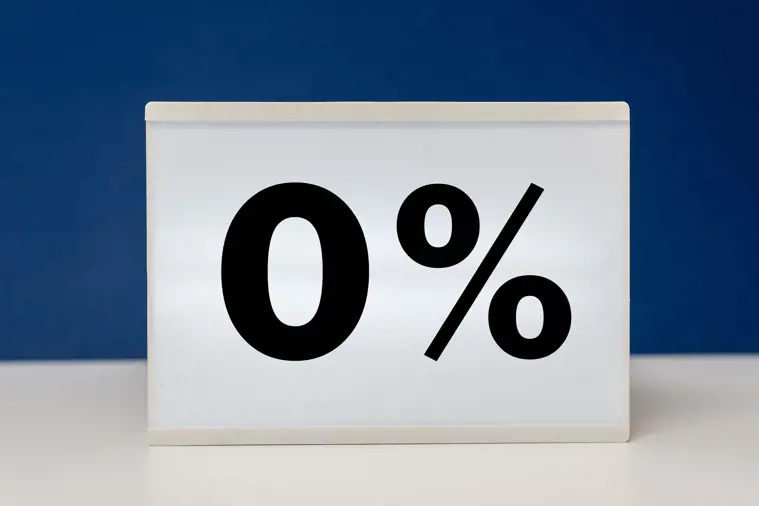What is interest-free credit?
High interest rates mean high monthly payments, but with interest-free credit there’s no interest to pay. Keep reading for all the details

You may be used to seeing interest-free credit when buying a sofa, but it can also be available when financing a car. Typically interest-free credit - also known as 0% APR - is available on new cars and means that you’re not being charged for the privilege of borrowing the money.
While a normal car finance contract sees interest added to the total amount you pay back - so the more you borrow and the longer the contract, the more interest you pay - interest-free credit means you simply pay back the amount you borrow and nothing more.
Is there a catch with interest-free credit?
In theory, interest-free credit is the holy grail - you get to pay for the car you want in affordable chunks with no interest added - but it’s not always the best deal.
That’s because you may be able to get additional list price savings or deposit contribution finance discounts by opting for a different deal. And these savings could actually save you more than the cost of the interest - making them better value than an interest-free credit option that has no deposit contribution.
This means that it’s always worth shopping around for car finance and getting like-for-like finance quotes to establish which deal gives you the lowest monthly payments and will cost you the least overall.
Can deposit contributions outweigh interest?
It’s not unusual for new car finance deals to feature deposit contribution discounts large enough to more than outweigh the interest charged. Even some £11,000 city cars can be available with deposit contributions of £1750, with interest charges amounting to just £1000 on a four-year contract - assuming 4.9% APR in this case.
While an interest-free credit option would cost you nothing in interest charges, the 4.9% APR choice could actually save you around £750, with the finance discount outweighing the interest charged. If in doubt, make sure you get like-for-like quotes for all the finance options available - with the same deposit, contract length and mileage allowance - so you can see which one will save you money.

Can you get interest-free credit and a deposit contribution?
In some cases, however, you can take advantage of interest-free credit and large deposit contributions. These offers are typically very good value, as you benefit from a discount on the cash price and don’t have to pay interest.
More expensive cars often come with low interest charges plus savings and it’s not unusual to find interest-free credit plus an £11,000 deposit contribution discount on a £70,000 luxury car.
Just check there aren’t even bigger cash discounts available. Any car that has interest-free credit plus additional savings is likely to be available with large cash discounts.
Is interest-free credit available on used cars?
Interest-free credit is normally only available on new cars, with the manufacturer effectively subsidising the cost of the finance in the place of a discount.
While some used car dealers do offer interest-free credit, the only way they can normally afford to do this is by inflating the cost of the car itself. This means that it's likely you're being overcharged for the car to cover the cost of the interest lost by the dealer.
If that’s the case, your monthly payments will be no lower with the interest-free credit finance - or they could be even be substantially higher - than on an equivalent car with a lower cash price and finance with a higher interest charge. Again, it’s wise to get like-for-like finance quotes to work out which option offers you the greatest value.
Is there a minimum deposit required?
Where several finance offers are available on the same car, you may have to put down a minimum deposit to secure the interest-free credit option or stick to a shorter contract.
That’s not always the case, however, and some cars are available with interest-free credit and no deposit, so you don’t have to have lots of cash to hand to benefit from no added interest.
